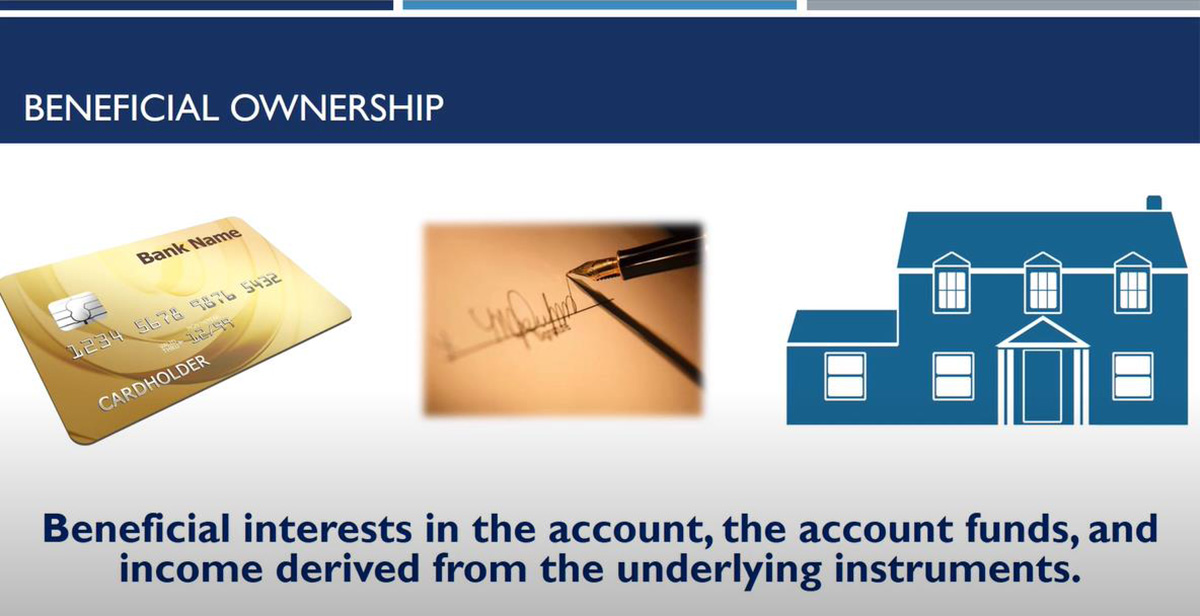

Finance
Why Are FHA Loans Beneficial To Lenders?
Published: February 18, 2024
Discover the advantages of FHA loans for lenders in the finance industry. Learn how FHA loans can benefit lenders and improve their financial prospects.
(Many of the links in this article redirect to a specific reviewed product. Your purchase of these products through affiliate links helps to generate commission for LiveWell, at no extra cost. Learn more)
Table of Contents
Introduction
FHA loans, backed by the Federal Housing Administration, play a pivotal role in enabling individuals to achieve their dream of homeownership. These loans are designed to provide a viable financing option, particularly for first-time homebuyers and those with limited financial resources. FHA loans offer several advantages for lenders, making them an appealing choice for facilitating mortgage transactions. In this comprehensive guide, we will delve into the various reasons why FHA loans are beneficial to lenders, shedding light on the specific features and mechanisms that make them an attractive prospect in the realm of mortgage lending.
FHA loans have gained prominence for their ability to mitigate the risks associated with lending to borrowers who may not meet the stringent criteria set by conventional mortgage programs. By exploring the key aspects of FHA loans, we can gain a deeper understanding of how they effectively serve the interests of both borrowers and lenders, fostering a more inclusive and accessible mortgage market.
Now, let's delve into the specific advantages that FHA loans offer to lenders, elucidating how these features contribute to a more secure and profitable lending environment.
Lower Down Payment Requirements
One of the primary reasons why FHA loans are advantageous to lenders is the significantly lower down payment requirements they entail. Unlike conventional mortgages that often necessitate a substantial upfront payment, FHA loans offer more lenient terms, allowing borrowers to make a down payment as low as 3.5% of the property’s purchase price. This reduced financial barrier enables a broader pool of potential homebuyers to qualify for mortgage financing, thereby expanding the market for lenders. By accommodating borrowers with limited funds for a down payment, FHA loans open the door to homeownership for individuals who may not have been able to participate in the real estate market otherwise.
From a lender’s perspective, the lower down payment requirement associated with FHA loans can lead to increased demand for these mortgage products. This heightened demand stems from the appeal of a more attainable initial investment, attracting a larger segment of the population seeking to purchase a home. Consequently, lenders can capitalize on a broader customer base, fostering greater lending opportunities and potentially enhancing their overall loan portfolio. Moreover, the ability to offer FHA loans with lower down payment requirements can bolster a lender’s competitive position in the market, as it aligns with the evolving preferences and financial circumstances of prospective homebuyers.
Furthermore, the reduced down payment stipulation of FHA loans is accompanied by flexible funding options, allowing borrowers to utilize various sources for the required funds. This adaptability can further incentivize individuals to pursue FHA loans, as they may have the flexibility to secure the necessary down payment through diverse channels, such as personal savings, financial gifts, or state and local homeownership programs. By accommodating a range of funding sources, FHA loans present an attractive proposition for both borrowers and lenders, fostering a more inclusive and accessible mortgage landscape.
Government Guarantee
Another compelling aspect of FHA loans that renders them advantageous to lenders is the government guarantee provided for these mortgage products. The Federal Housing Administration insures FHA loans, mitigating the risk for lenders by offering a financial safety net in the event of borrower default. This government-backed assurance serves as a cornerstone of confidence for lenders, as it provides a layer of protection against potential losses, thereby incentivizing them to extend financing to a broader spectrum of borrowers.
The government guarantee associated with FHA loans instills a heightened sense of security for lenders, as it signifies that a portion of the loan amount is safeguarded by the federal government. This assurance can embolden lenders to extend mortgage credit to individuals who may not meet the stringent criteria of conventional loans, such as those with limited credit history or lower credit scores. By leveraging the government guarantee, lenders can mitigate the inherent risks of accommodating borrowers with non-traditional financial profiles, thereby expanding their lending scope and participating in the realization of homeownership for a more diverse clientele.
Moreover, the government guarantee on FHA loans can translate into more favorable terms for borrowers, including competitive interest rates and reduced closing costs. This, in turn, can stimulate heightened demand for FHA loans, amplifying the lending opportunities for financial institutions. The government’s commitment to backing FHA loans underscores the significance of these mortgage products in fostering a more inclusive and accessible housing market, aligning with the broader societal objective of promoting homeownership.
Attractive Interest Rates
FHA loans offer lenders the advantage of facilitating mortgage transactions with attractive interest rates, thereby enhancing the appeal of these loans to a diverse array of borrowers. The Federal Housing Administration’s role in insuring FHA loans enables lenders to extend financing at competitive interest rates, making homeownership a more feasible and enticing prospect for potential homebuyers. The assurance provided by the government guarantee instills a greater degree of confidence in lenders, empowering them to offer FHA loans with favorable interest rates that align with the financial objectives and capabilities of borrowers.
By leveraging the government-backed insurance on FHA loans, lenders can optimize the terms of the mortgage, including the interest rate, to cater to the diverse needs and financial circumstances of borrowers. This flexibility in structuring the loan terms enables lenders to attract a broader clientele, encompassing individuals with varying income levels and credit profiles. The ability to extend financing at attractive interest rates enhances the marketability of FHA loans, positioning them as a compelling option for both first-time homebuyers and those seeking to refinance existing mortgages.
Furthermore, the competitive interest rates associated with FHA loans can stimulate heightened demand for these mortgage products, amplifying the lending opportunities for financial institutions. The allure of favorable interest rates serves as a catalyst for expanding the reach of FHA loans, fostering a more inclusive and accessible housing market. This, in turn, aligns with the overarching objective of promoting homeownership and financial stability within communities, underscoring the pivotal role of FHA loans in advancing these collective aspirations.
Easier Qualification Standards
FHA loans present lenders with the advantage of accommodating borrowers through more accessible qualification standards, thereby broadening the scope of potential homebuyers and fostering a more inclusive mortgage market. The Federal Housing Administration’s guidelines for FHA loans feature more lenient qualification criteria compared to conventional mortgages, enabling individuals with diverse financial backgrounds to pursue homeownership. This aspect of FHA loans is particularly advantageous to lenders, as it expands their lending opportunities and cultivates a customer base that may not meet the stringent requirements of traditional mortgage programs.
By embracing easier qualification standards, FHA loans cater to individuals with varying credit profiles and financial capabilities, including first-time homebuyers and those with limited credit history. The flexibility embedded within the qualification parameters of FHA loans empowers lenders to extend financing to a broader spectrum of borrowers, thereby enriching their loan portfolio and contributing to the realization of homeownership for a more diverse clientele. This inclusive approach aligns with the overarching objective of fostering financial inclusivity and empowering individuals to embark on the path to homeownership.
Moreover, the streamlined qualification process for FHA loans can expedite the mortgage approval timeline, enhancing the efficiency of lending operations for financial institutions. The reduced bureaucratic hurdles and more pragmatic assessment of borrower eligibility associated with FHA loans can streamline the loan origination process, optimizing the overall efficiency of mortgage transactions. This, in turn, can translate into a more seamless and expedited experience for borrowers, further enhancing the appeal of FHA loans and bolstering lenders’ competitive position in the housing finance landscape.
Conclusion
In conclusion, FHA loans offer a multitude of benefits to lenders, positioning these mortgage products as a compelling avenue for expanding lending opportunities and fostering a more inclusive housing finance environment. The lower down payment requirements associated with FHA loans enable lenders to cater to a broader segment of potential homebuyers, thereby amplifying their market reach and diversifying their customer base. This, in turn, contributes to the realization of homeownership for individuals who may encounter financial constraints when pursuing conventional mortgage options.
Furthermore, the government guarantee on FHA loans serves as a pivotal pillar of assurance for lenders, mitigating the inherent risks of extending financing to borrowers with non-traditional financial profiles. This assurance empowers lenders to participate in the facilitation of homeownership for a more diverse clientele, aligning with the broader societal objective of promoting housing accessibility and financial inclusivity.
The attractive interest rates and easier qualification standards associated with FHA loans further enhance their appeal to lenders, stimulating heightened demand for these mortgage products and fostering a more dynamic and inclusive mortgage market. By leveraging the flexible terms and streamlined qualification process of FHA loans, lenders can optimize their lending operations and cultivate a more expansive and diverse customer base, thereby contributing to the overarching goal of advancing homeownership opportunities for individuals from all walks of life.
In essence, the multifaceted advantages of FHA loans, ranging from reduced down payment requirements to government backing and borrower-friendly terms, collectively position these mortgage products as a valuable asset in the arsenal of lenders. By embracing FHA loans, lenders can not only expand their lending scope but also play a pivotal role in realizing the aspirations of individuals and families striving to achieve the milestone of homeownership.














